Tens of thousands rally in Ethiopian capital to slam US, support govt. campaign against rebels
Tens of thousands of people have rallied in the Ethiopian capital Addis Ababa to denounce the United States and support the government’s campaign against rebellious forces who are threatening to march on the capital.
On Sunday, protesters took to the streets of Addis Ababa expressing their firm support for Ethiopian Prime Minister Abiy Ahmed, who has launched a military operation against armed rebels in the restive northern region of Tigray.
The demonstrators, some of them convened in Meskel Square in central Addis Ababa, draped themselves in the national flag and denounced the US, which has been calling on Abiy’s government in recent days to hold a ceasefire with armed rebels.
“Shame on you USA”, read one demonstrator’s placard, while another said the US should stop “sucking Ethiopia’s blood.”
“Why does the US government not negotiate with terrorists like al-Shabab?” said another demonstrator, referring to an al-Qaeda-inked Takfiri terrorist group mostly active in Somalia.
“They want to destroy our country like they did to Afghanistan. They will never succeed, we are Ethiopians,” she added.
Tigray has been the scene of conflict since November 2020, when Abiy, winner of the 2019 Nobel Peace Prize, sent troops there to topple Tigray People’s Liberation Front (TPLF) in response to attacks on army camps.
Three weeks later, the government declared victory when it gained control of the regional capital, Mekelle. However, the TPLF forces resumed fighting later and retook Mekelle and most of Tigray at the end of June after the government withdrew its soldiers and declared a ceasefire. The fighting has continued since then.
The year-long war, which has so far killed thousands of people and displaced two million more, intensified amid rebel advances last weekend as Abiy’s government has pledged to keep fighting.
The central government in Addis Ababa stressed on Friday that it had a responsibility to secure the east African country, urging its international partners to stand with Ethiopia’s democracy.
On Tuesday, the government declared a state of emergency and allowed citizens of military age to undergo training and accept military duties.
Authorities have already asked residents to organize to defend the city although the government has denied that Addis Ababa is under threat from the TPLF forces.
Adanech Abebe, Addis Ababa’s mayor, said in a speech on Sunday that the country’s enemies were trying to “terrorize our population.”
“They say Addis Ababa is surrounded, but Addis Ababa is only surrounded by its incredible people, by its vigilant, heroic children,” she stressed.
Last week, the TPLF claimed that its forces were 325 kilometers from the capital. However, the government says the rebel group is exaggerating its gains.
Abiy’s government has lambasted the foreign media for what it brands as inaccurate and biased coverage of the conflict. On Sunday, some demonstrators also held signs denouncing “fake news” in Ethiopia.
Late Saturday, Billene Seyoum, Abiy’s spokesperson, tweeted that “Orchestrated media propaganda against Ethiopia is escalating ... Despite it all, Ethiopia will overcome!”
Tigray rebels dismiss bloodbath fears
Separately, the TPLF played down reports that they would face a hostile population or cause a “bloodbath” if they advanced into Addis Ababa.
“The story that the population in Addis is vehemently opposed to us is absolutely overstated,” said TPLF spokesman Getachew Reda on Saturday night.
“Addis is a melting pot. People with all kinds of interests live in Addis. The claim that Addis will turn into a bloodbath if we enter Addis is absolutely ridiculous,” he further claimed, stressing that taking over the capital was not “an objective” and that TPLF had no desire to take back power.
This is while TPLF, which dominated Ethiopia's politics for nearly 30 years until Abiy came to power in 2018, wants to seize Addis Ababa to overthrow Abiy.
On Friday, the UN Security Council expressed “deep concern” over the escalation of fighting in Ethiopia, calling for a ceasefire and the initiation of peace talks in Tigray region, where 400,000 people have so far been pushed to the brink of famine.
Abiy's government has faced criticism over the conflict, notably from the US, a longtime ally, with President Joe Biden signing an executive order allowing for sanctions against the warring parties if they fail to commit to a negotiated settlement.
The TPLF and the so-called Oromo Liberation Army (OLA) were officially designated as terrorist groups by the government in May.
Yemeni armed forces down F-18 fighter jet, repel US-UK attack: Spokesman
Iran warns against US-Israeli plot to weaken Muslims, dominate region
VIDEO | Public uproar in US against Israeli regime
‘Ghost town’: 70% of Jabalia buildings destroyed by Israel
Mother’s Day: Sareh Javanmardi’s inspiring journey as Paralympic champion and mother
Russia downs over 40 Ukrainian drones as Putin vows 'destruction' on Kiev
VIDEO | Yemen: A bone in Israeli neck
D-8’s role in Iran’s economy after Cairo summit


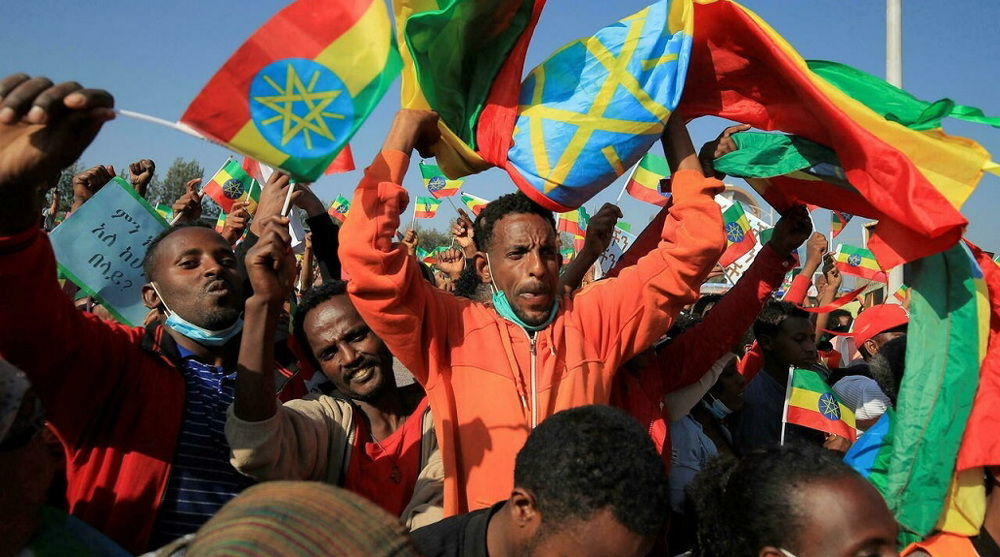
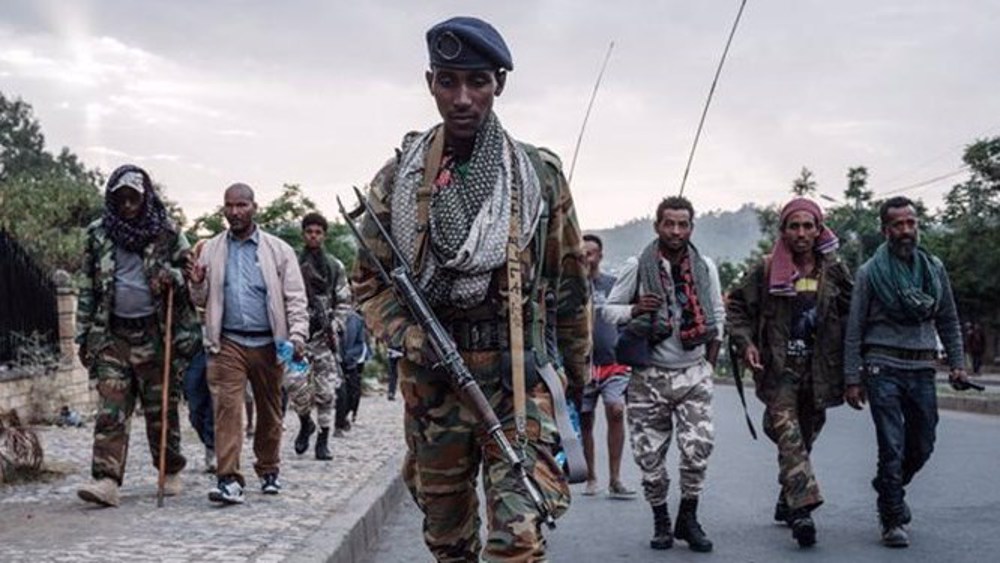
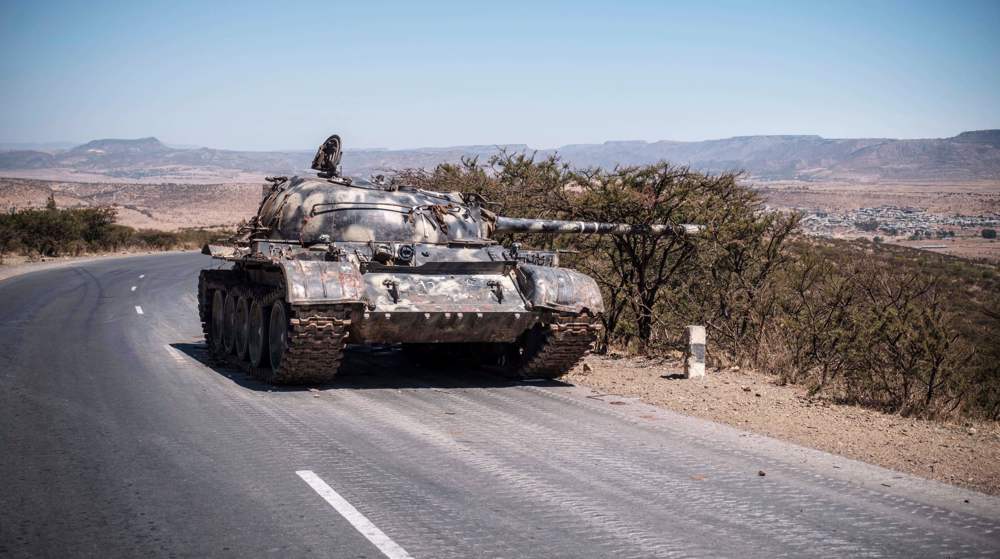


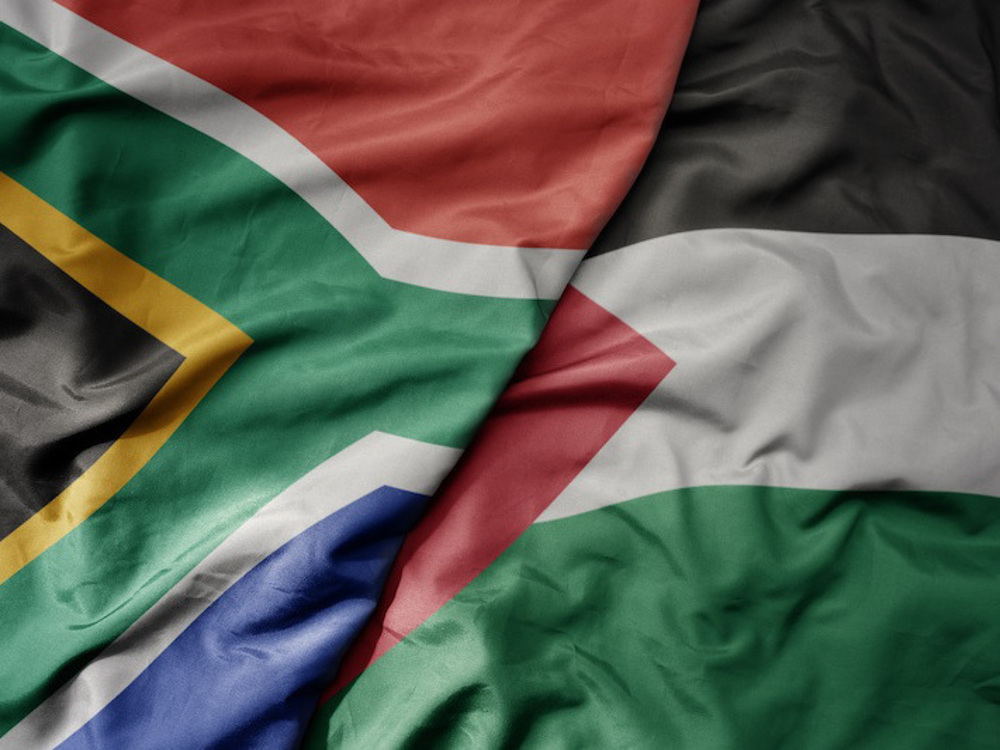



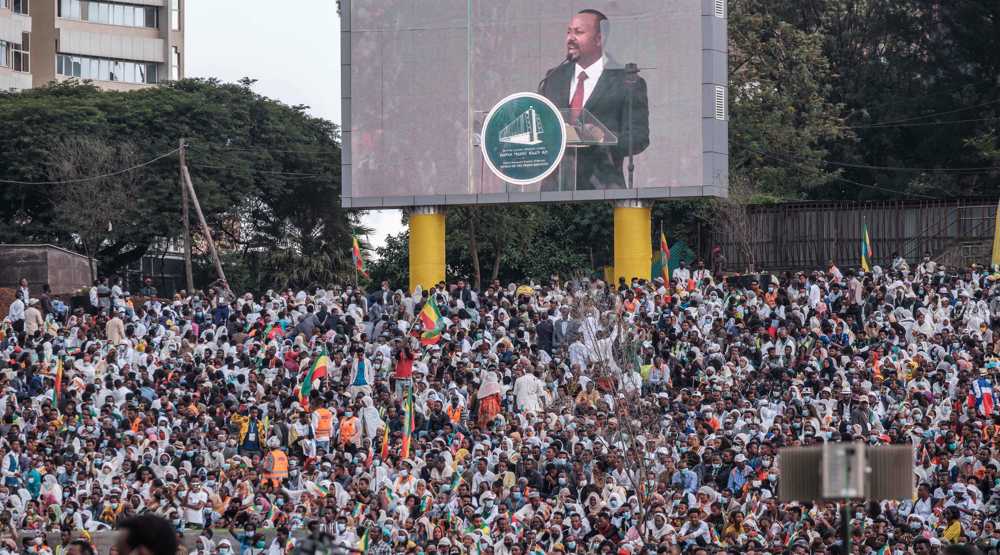
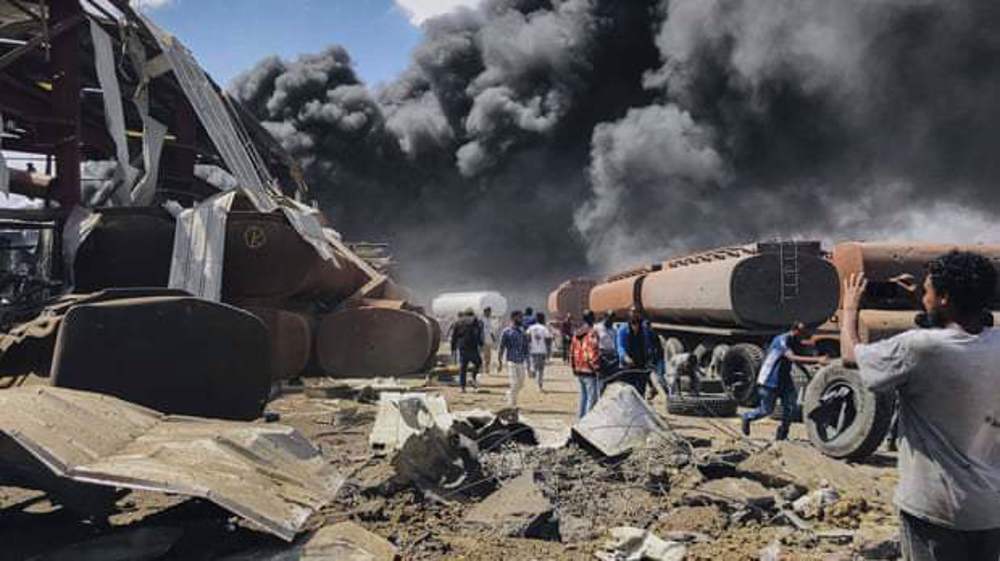
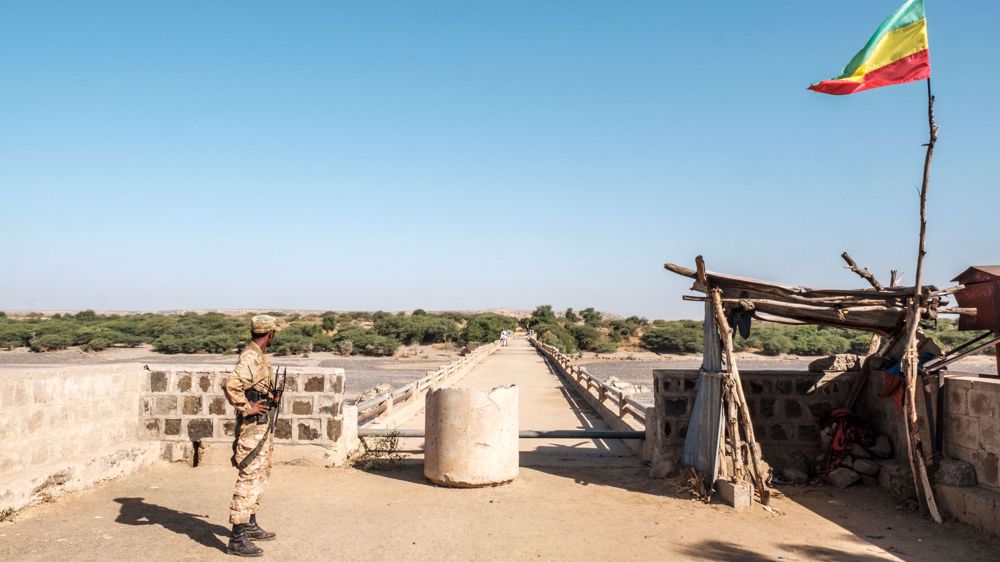
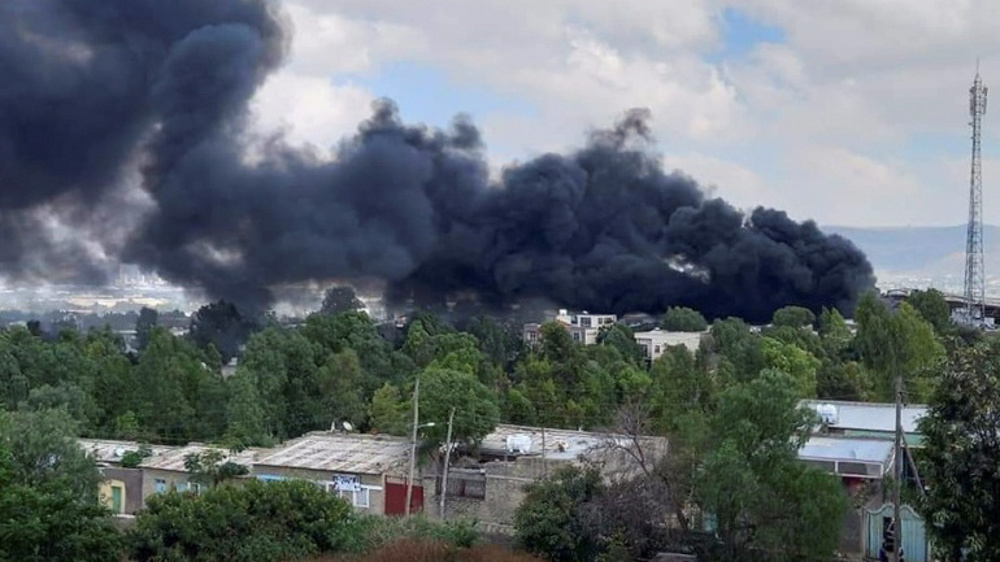

 This makes it easy to access the Press TV website
This makes it easy to access the Press TV website